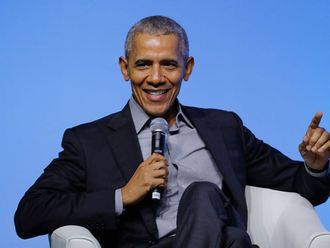
Washington: Life is a lottery, and the most important part isn’t how smart you are or even who your parents are. It’s where you were born.
That, at least, is what economist Branko Milanovic, writing in the May issue of The Review of Economics and Statistics, found when he broke down how much people in different countries make at different income percentiles. That lets us figure out, for example, that the bottom 1 per cent in Germany are better off than all but the top 40 per cent in China. And that more than half of what you earn is determined by the country you live in. But really, when you consider the fact that only 3 per cent of the world’s population are immigrants, it’s determined by the country you were born in.
The easiest way to think about this is in terms of McWages. Asking if people want fries with that doesn’t change from one country to the next, but what you’re paid to do it does — and by a lot, too. Economist Orley Ashenfelter, in a 2012 paper, found that in 2007 McDonald’s workers in India made only $0.46 (Dh1.68) an hour compared with $0.81 in China, $2.34 in Russia, $7.33 in the United States and $9.44 in Western Europe.
The simple story is that richer countries can afford to pay people more for doing the same work. And they require it if they have a minimum wage or a de facto one due to collective bargaining. That’s why McDonald’s restaurants in Denmark don’t pay a McWage so much as a living one of $20 an hour.
It’s a little more complicated than that, though, since Denmark has a much higher cost of living than, say, India. But Milanovic controls for this by using what are called purchasing power parity, or PPP, dollars, that adjust for the fact that local goods, like, say, a haircut, cost less in some countries than in others. In other words, that you don’t always need as much money to live the same way. This changes the picture, but not that much. The poorest Germans, as Milanovic noted, are still better off than 40 per cent of Brazilians, 60 per cent of Chinese and more than 90 per cent of Indians.
Now, the United States isn’t as equal as Germany is — our bottom 1 per cent are a little poorer, making $1,600 in PPP terms to Germany’s $2,200 — but our rich race away from the rest. The top 1 per cent make $180,000 in the United States versus $104,000 in Germany and, at the other extreme, just $7,000 in India. This isn’t because we’re smarter than everybody else — we’re not — but rather that we live in a richer country that’s geared more toward accumulating wealth than sharing it.
Of course, there’s an easy way for more people to become as rich as Americans. That’s for them to, well, become Americans. Think about it like this: The same way that moving a farmer to a factory in, say, China makes them produce and earn more, so does moving a factory worker from China to the United States. Immigration, in other words, lets people make more for doing the same, or maybe even worse, job that they had back home — which is just another way of saying that it makes the global economy bigger.
There’s an obvious problem, though. If we let everyone who wanted to come to the United States into the country, it would drive down wages for the people who already live here — maybe as much as 20 per cent — in at least the short-to-medium run. That’s not the kind of thing you can just wave away. Still, a little more immigration would probably help the economy without hurting wages, not to mention the huge boost it would be for all the people coming here.
There’s nothing more valuable than a US passport. And there’s nothing that would reduce global inequality more than issuing a few more of them.










_resources1_16a30b3523c_small.jpg)

